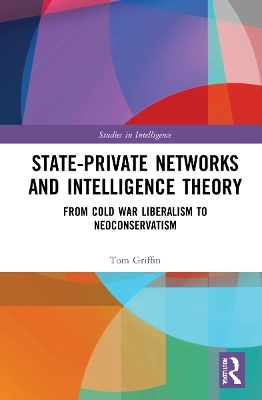
State-Private Networks and Intelligence Theory
From Cold War Liberalism to Neoconservatism
Seiten
2024
Routledge (Verlag)
978-0-367-61206-1 (ISBN)
Routledge (Verlag)
978-0-367-61206-1 (ISBN)
This book examines the US neoconservative movement, arguing that its support for the 2003 invasion of Iraq was rooted in an intelligence theory shaped by the policy struggles of the Cold War.
This book examines the United States neoconservative movement, arguing that its support for the 2003 invasion of Iraq was rooted in an intelligence theory shaped by the policy struggles of the Cold War.
The origins of neoconservative engagement with intelligence theory are traced to a tradition of labour anti-communism that emerged in the early 20th century and subsequently provided the Central Intelligence Agency with key allies in the state-private networks of the Cold War era. Reflecting on the break-up of Cold War liberalism and the challenge to state-private networks in the 1970s, the book maps the neoconservative response that influenced developments in United States intelligence policy, counterintelligence and covert action. With the labour roots of neoconservatism widely acknowledged but rarely systematically pursued, this new approach deploys the neoconservative literature of intelligence as evidence of a tradition rooted in the labour anti-communist self-image as allies rather than agents of the American state.
This book will be of great interest to all students of intelligence studies, Cold War history, United States foreign policy and international relations.
This book examines the United States neoconservative movement, arguing that its support for the 2003 invasion of Iraq was rooted in an intelligence theory shaped by the policy struggles of the Cold War.
The origins of neoconservative engagement with intelligence theory are traced to a tradition of labour anti-communism that emerged in the early 20th century and subsequently provided the Central Intelligence Agency with key allies in the state-private networks of the Cold War era. Reflecting on the break-up of Cold War liberalism and the challenge to state-private networks in the 1970s, the book maps the neoconservative response that influenced developments in United States intelligence policy, counterintelligence and covert action. With the labour roots of neoconservatism widely acknowledged but rarely systematically pursued, this new approach deploys the neoconservative literature of intelligence as evidence of a tradition rooted in the labour anti-communist self-image as allies rather than agents of the American state.
This book will be of great interest to all students of intelligence studies, Cold War history, United States foreign policy and international relations.
Tom Griffin is a freelance writer and archival researcher, and former executive editor of The Irish World. He has a PhD in Social and Policy Sciences from the University of Bath, UK.
Introduction: Intelligence in the transition from Cold War liberalism to neoconservatism 1. Labour anti-communism before the Cold War 2. AFL-CIA: The Cold War state-private network 3. The break-up of the post-war consensus 4. The neoconservative counteroffensive of the 1970s 5. The Consortium for the Study of Intelligence: a paradigm for political warfare 6. Neoconservative intelligence in the Reagan era 7. From the end of the Cold War to the War on Terror Conclusion: Neoconservative intelligence and the revolt of the state-private network
| Erscheinungsdatum | 15.06.2022 |
|---|---|
| Reihe/Serie | Studies in Intelligence |
| Verlagsort | London |
| Sprache | englisch |
| Maße | 156 x 234 mm |
| Gewicht | 453 g |
| Themenwelt | Geschichte ► Teilgebiete der Geschichte ► Militärgeschichte |
| Sozialwissenschaften ► Politik / Verwaltung ► Europäische / Internationale Politik | |
| Sozialwissenschaften ► Politik / Verwaltung ► Staat / Verwaltung | |
| ISBN-10 | 0-367-61206-2 / 0367612062 |
| ISBN-13 | 978-0-367-61206-1 / 9780367612061 |
| Zustand | Neuware |
| Haben Sie eine Frage zum Produkt? |
Mehr entdecken
aus dem Bereich
aus dem Bereich
Geschichte, Positionen, Perspektiven
Buch | Softcover (2023)
C.H.Beck (Verlag)
12,00 €
neueste Manipulationstechniken als Waffengattung der NATO
Buch | Softcover (2023)
Westend (Verlag)
24,00 €
Deutschlands Schwäche in der Zeitenwende
Buch | Softcover (2023)
C.H.Beck (Verlag)
18,00 €


